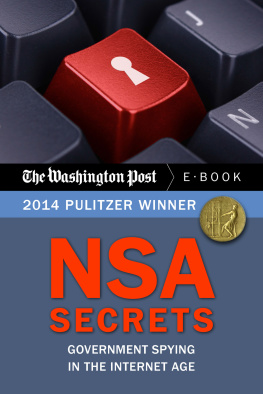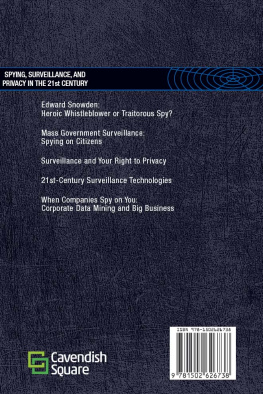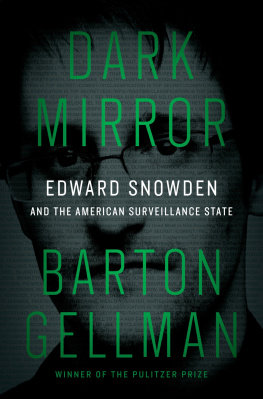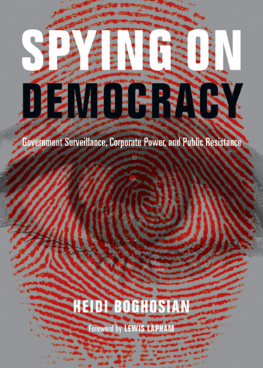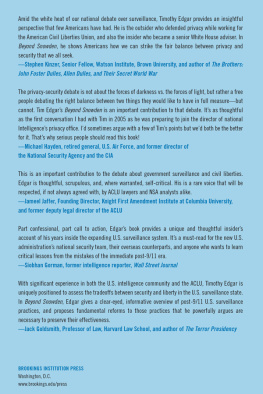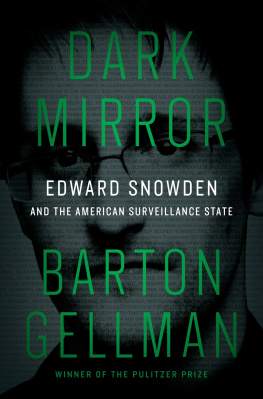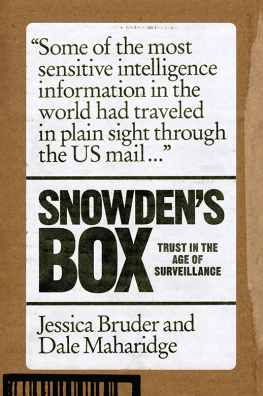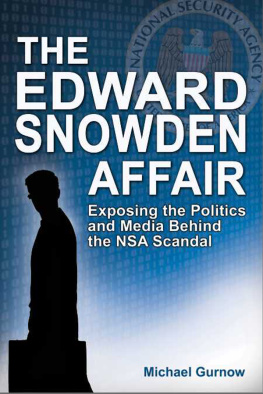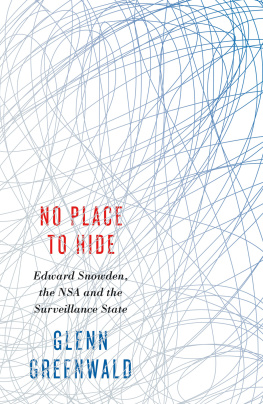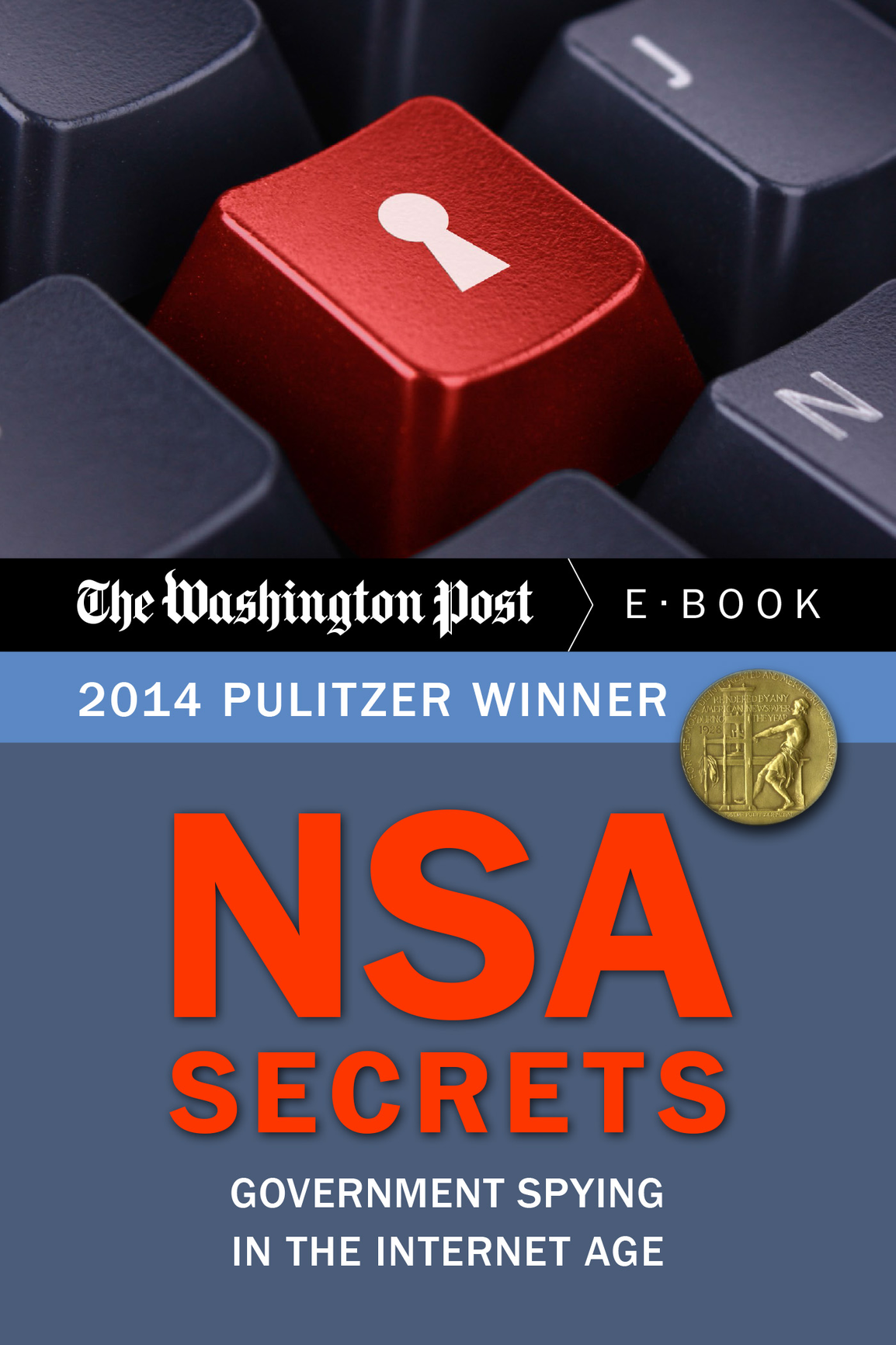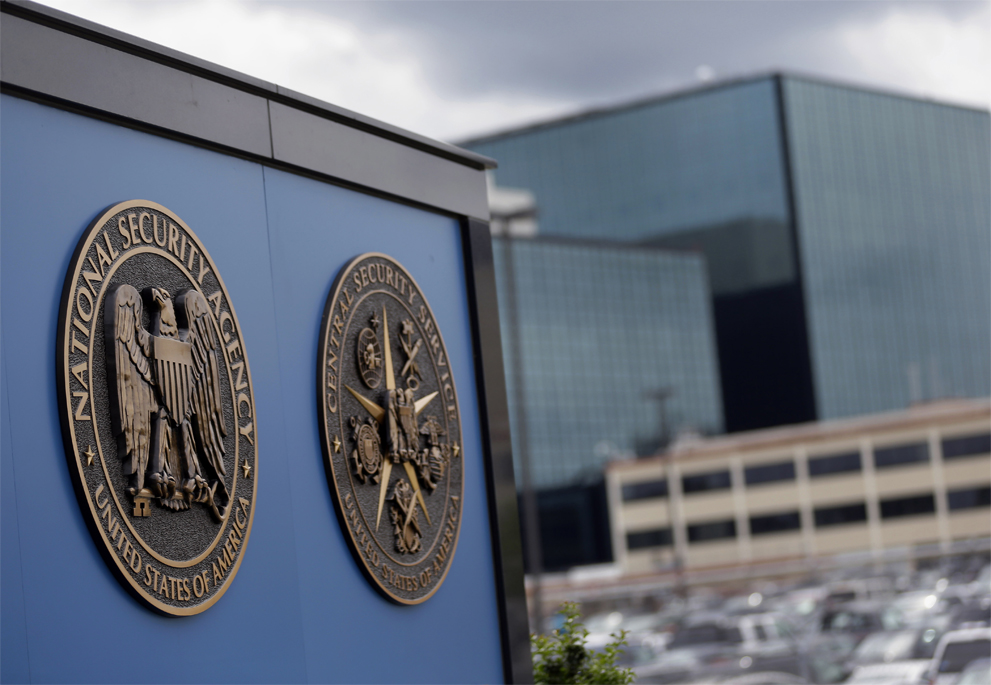All rights reserved, including the right to reproduce this book or portions thereof in any form whatsoever.
Introduction
By Barton Gellman
December 23, 2013
An undated handout photo by the National Security Agency (NSA) shows the NSA headquarters in Fort Meade, Maryland, USA. A secret intelligence program called Prism run by the NSA has been collecting data from millions of communication service subscribers through access to many of the top Internet companies, including Google, Facebook, Apple and Verizon. (EPA/National Security Agency/Handout)
MOSCOW The familiar voice on the hotel room phone did not waste words.
What time does your clock say, exactly? he asked.
He checked the reply against his watch and described a place to meet.
Ill see you there, he said.
Edward Joseph Snowden emerged at the appointed hour, alone, blending into a light crowd of locals and tourists. He cocked his arm for a handshake, then turned his shoulder to indicate a path. Before long he had guided his visitor to a secure space out of public view.
During more than 14 hours of interviews, the first he has conducted in person since arriving here in June, Snowden did not part the curtains or step outside. Russia granted him temporary asylum on Aug. 1, but Snowden remains a target of surpassing interest to the intelligence services whose secrets he spilled on an epic scale.
Late this spring, Snowden supplied three journalists, including this one, with caches of top-secret documents from the National Security Agency, where he worked as a contractor. Dozens of revelations followed, and then hundreds, as news organizations around the world picked up the story. Congress pressed for explanations, new evidence revived old lawsuits and the Obama administration was obliged to declassify thousands of pages it had fought for years to conceal.
Taken together, the revelations have brought to light a global surveillance system that cast off many of its historical restraints after the attacks of Sept. 11, 2001. Secret legal authorities empowered the NSA to sweep in the telephone, Internet and location records of whole populations. One of the leaked presentation slides described the agencys collection philosophy as Order one of everything off the menu.
Six months after the first revelations appeared in The Washington Post and Britains Guardian newspaper, Snowden agreed to reflect at length on the roots and repercussions of his choice. He was relaxed and animated over two days of nearly unbroken conversation, fueled by burgers, pasta, ice cream and Russian pastry.
Snowden offered vignettes from his intelligence career and from his recent life as an indoor cat in Russia. But he consistently steered the conversation back to surveillance, democracy and the meaning of the documents he exposed.
For me, in terms of personal satisfaction, the missions already accomplished, he said. I already won. As soon as the journalists were able to work, everything that I had been trying to do was validated. Because, remember, I didnt want to change society. I wanted to give society a chance to determine if it should change itself.
All I wanted was for the public to be able to have a say in how they are governed, he said. That is a milestone we left a long time ago. Right now, all we are looking at are stretch goals.
Going in blind
Snowden is an orderly thinker, with an engineers approach to problem-solving. He had come to believe that a dangerous machine of mass surveillance was growing unchecked. Closed-door oversight by Congress and the Foreign Intelligence Surveillance Court was a graveyard of judgment, he said, manipulated by the agency it was supposed to keep in check. Classification rules erected walls to prevent public debate.
Toppling those walls would be a spectacular act of transgression against the norms that prevailed inside them. Someone would have to bypass security, extract the secrets, make undetected contact with journalists and provide them with enough proof to tell the stories.
The NSAs business is information dominance, the use of other peoples secrets to shape events. At 29, Snowden upended the agency on its own turf.
You recognize that youre going in blind, that theres no model, Snowden said, acknowledging that he had no way to know whether the public would share his views.
But when you weigh that against the alternative, which is not to act, he said, you realize that some analysis is better than no analysis. Because even if your analysis proves to be wrong, the marketplace of ideas will bear that out. If you look at it from an engineering perspective, an iterative perspective, its clear that you have to try something rather than do nothing.
By his own terms, Snowden succeeded beyond plausible ambition. The NSA, accustomed to watching without being watched, faces scrutiny it has not endured since the 1970s, or perhaps ever.
The cascading effects have made themselves felt in Congress, the courts, popular culture, Silicon Valley and world capitals. The basic structure of the Internet itself is now in question, as Brazil and members of the European Union consider measures to keep their data away from U.S. territory and U.S. technology giants including Google, Microsoft and Yahoo take extraordinary steps to block the collection of data by their government.
For months, Obama administration officials attacked Snowdens motives and said the work of the NSA was distorted by selective leaks and misinterpretations.
On Dec. 16, in a lawsuit that could not have gone forward without the disclosures made possible by Snowden, U.S. District Judge Richard J. Leon described the NSAs capabilities as almost Orwellian and said its bulk collection of U.S. domestic telephone records was probably unconstitutional.
The next day, in the Roosevelt Room, an unusual delegation of executives from old telephone companies and young Internet firms told President Obama that the NSAs intrusion into their networks was a threat to the U.S. information economy. The following day, an advisory panel appointed by Obama recommended substantial new restrictions on the NSA, including an end to the domestic call-records program.
This week is a turning point, said the Government Accountability Projects Jesselyn Radack, who is one of Snowdens legal advisers. It has been just a cascade.
They elected me
On June 22, the Justice Department unsealed a criminal complaint charging Snowden with espionage and felony theft of government property. It was a dry enumeration of statutes, without a trace of the anger pulsing through Snowdens former precincts.
In the intelligence and national security establishments, Snowden is widely viewed as a reckless saboteur, and journalists abetting him little less so.

